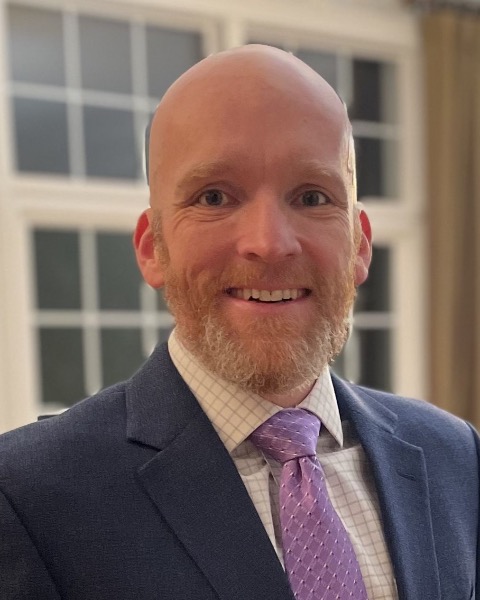Medical Education: Faculty Development
Medical Education 5: Faculty Development 1
518 - Factors Associated with Professional Fulfillment and Burnout Among Pediatric Physicians
Publication Number: 518.227

Ronnie Thomas Collins, II, MD, MS
Vice Chair of Faculty and Academic Affairs
University of Kentucky College of Medicine
Lexington, Kentucky, United States
Presenting Author(s)
Background:
Physician burnout is an epidemic and poses a threat to our healthcare system. Professional fulfillment is associated with burnout. Little is known about associations among pediatric physicians of drivers of professional fulfillment and burnout.
Objective: We sought to determine factors associated with professional fulfillment and burnout among pediatric physicians.
Design/Methods: Using themes from 120 semi-structured interviews with faculty in the Department of Pediatrics, we developed a Likert-scale based, 22-question battery of their current work experience. We combined the 22-question battery with a standardized instrument that assesses burnout and professional fulfillment and administered the resultant survey to our pediatric and pediatric-affiliated (e.g. pediatric surgery, pediatric psychiatry, etc) physicians between November 2 and December 9, 2022. We used standard statistical methods to analyze the data. A p-value < 0.05 was considered significant.
Results: A total of 142 respondents completed the survey, 129 (91%) were Pediatrics faculty. Burnout was present in 41% (58/142) of respondents, whereas 30% (42/142) were professionally fulfilled. Among those with burnout, professional fulfillment was present in 5% (3/58. Among those not suffering from burnout, professional fulfillment was present in 48% (39/82), p< 0.001. For each point increase in professional fulfillment, the odds ratio (OR) for burnout was 0.099 [95% CI 0.041-0.24], p< 0.0001. For each point increase in perceived excessive workload, the OR for burnout was 3.016 [95% CI 1.267-7.179], p=0.0126. For each point increase in feeling unappreciated, the OR for burnout was 2.57 [95% CI 1.169-5.653] p=0.0189. When analyzing fulfillment, for each point increase in burnout, the OR of professional fulfillment was [0.12, 95% CI 0.049-0.295], p=0.0022. For each point increase in perceived organizational support, the OR of professional fulfillment was 2.636 [95% CI 1.419-4.897], p< 0.0001.
Conclusion(s): Among pediatric physicians, burnout is strongly, inversely correlated with professional fulfillment and directly correlated with perceived excessive workload and feeling unappreciated. Conversely, professional fulfillment is strongly correlated with perceived organizational support. To improve pediatric physician burnout and professional fulfillment, organizations must provide physicians with support, decrease physician workload, and increase physicians’ feelings of being appreciated.
